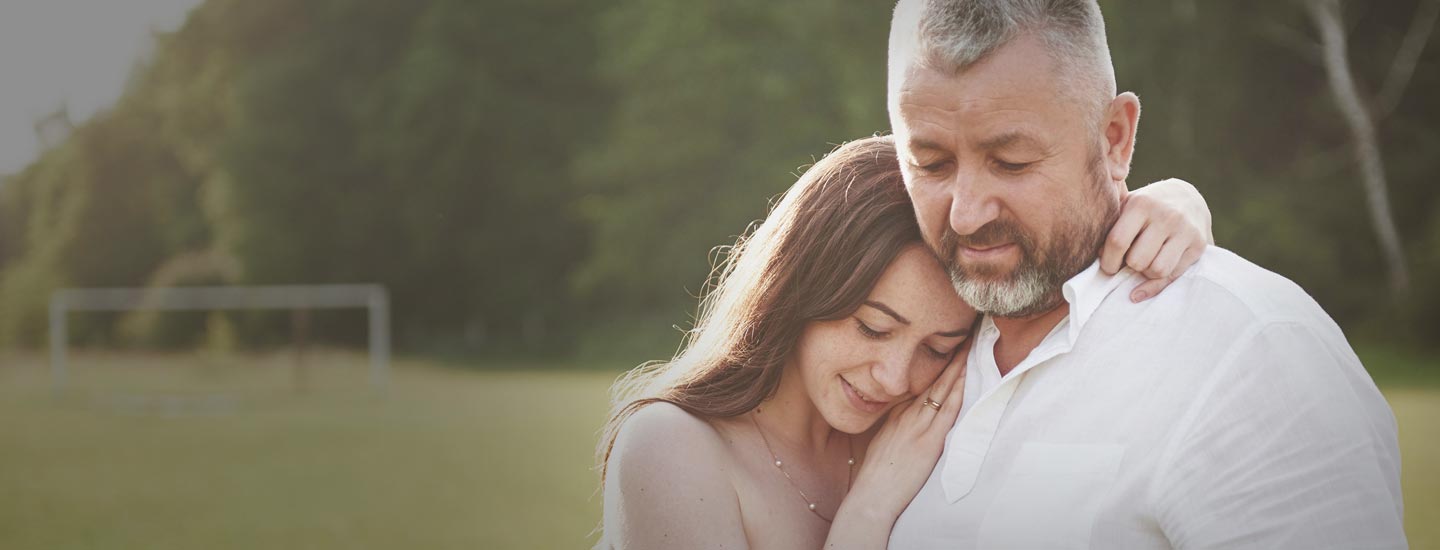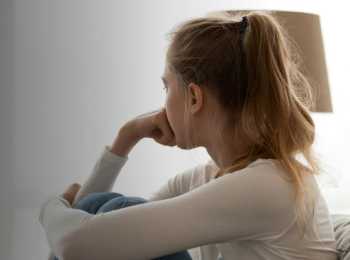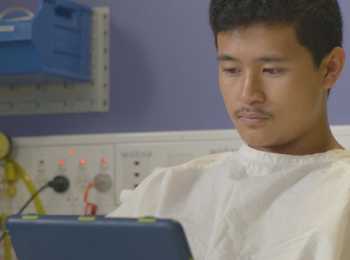Contents
Part 5
Some thoughts to carry with you
When your parent dies
These are some signs that death has occurred:
- Breathing stops
- Pulse stops
- They do not respond to anything
- Their skin feels cool and looks pale
- Eyes stop moving and may stay open
- Pupils of the eyes stay large, even in bright light
- Control of bowels or bladder is lost as the muscles relax
You might be scared about what your parent will look like after they die. Being aware of what might happen can help you feel more prepared.
What do we have to do?
Wherever your parent dies, there is nothing that needs to be done in a hurry. This is a personal time to be with them and say goodbye. Take as long as you need.
Some families have chosen to spend this time doing things like sleeping next to their parent one last time, washing them and brushing their hair, cutting a lock of hair to keep, holding their hand and talking to them. It’s perfectly OK to touch and hold your parent after they have died.
“It’s a terrible thing when it does happen, but you can’t decide when and where it will happen or what you’ll say. When it happens, it happens - don’t put too much pressure on yourself to say the right thing”.
Eloise
The decision to see your parent after they die is up to you. Remember that even with the best planning things can change when the actual moment arrives, so be gentle with yourself and understand how you are feeling.
If things don’t go exactly as you would have liked, there are lots of things you can do to say goodbye in different ways.
If your parent dies at home
Your parent’s palliative care team will tell you what you need to do and who you should call if your parent dies at home.
Usually, you will have to call your parent’s doctor and a funeral director and they will lead you through the next steps. If your parent dies in the night, it’s OK to wait until morning before you call the appropriate people if you want to.
The doctor will come and check your parent and sign a death certificate and give this to your family or your funeral director.
If they die in a hospital or hospice
It is fine to sit with your mum or dad for a while after they die. There is no rush to call anyone or get anything done right away. Many families find this is an important time to talk together or pray and say goodbye.
The doctor will give your family a death certificate for you to take to the funeral director. You may be able to take your parent home for one last visit. The funeral director might also come to collect your parent’s body from the hospital or hospice.
It can be really hard to leave without your parent. The staff will support you and let your family know what you should do next.
“You think you have prepared yourself to say goodbye, over many, many months and in some cases years.
You tell yourself you’re ready for them to go, ready for them to be at peace. But when it all comes down to it, in those fnal days, hours, minutes, seconds, nothing can prepare you for the feelings and emotions you will experience.”
Rebecca

What happens now?
No matter how long you have known this was going to happen, how much you have thought about it and how ready you think you are, nothing can ever fully prepare you for how you will feel when your parent dies.
Your reality has changed forever and it can be impossibly hard to think about facing your life without them in it.
There is no guidebook for how to get through this. There is no ‘right thing to do’ or ‘best advice we can give’. Each person deals with grief in their own personal way.
The first few days
The first few days or weeks after it happens might feel very strange and life at home might seem really flat. It is impossible to predict how you might feel, or what this time will be like. Here are some things other young people have described:
Numb. Your body might be going through the motions, but you don’t feel sad or anything at all. You might feel disconnected from the world and like nothing feels real. You might think you should be crying but the tears just aren’t there. This is your body’s normal reaction to shock.
"The day he died I went to dancing so I could get my mind off it. I wasn’t sad the day he died. I needed a distraction."
Erin
"I think the next few days we just stayed with each other and didn’t really do much. We didn’t really get into a normal routine, making food and doing chores for a few weeks."
Sarah
Lost. It might feel eerily quiet and calm just after your parent dies, particularly if you have been living with their illness for a while. When you don’t have to care for your parent anymore, what are you supposed to do now? It can take a really long time to get used to the massive changes in your life and for things to settle back into a new kind of “normal”.
"I was used to saying “no” to friends’ invites as I had to look after Dad, so I lost a lot of friends as it seemed like I wasn’t interested in going out with them. Having to create a new life for myself and become more self-confident to get by was a challenge, but I am achieving that."
Melissa
Get up, go to hospital, go home.
You get into a routine and then it’s over.
Andrew
Distracted. It might also be really busy, there might be people everywhere and things to do and you don’t get a lot of time to yourself to take in what has happened.
"The week after Dad passed away to the day of the funeral all seem like a blur. I threw myself into preparing a slideshow and booklet for the funeral and that’s about all I remember doing. Our Grandma came to stay and looked after meals, etc."
Melissa

Denial. You might find it really hard to accept that your mum or dad has gone and that your life will not go back to the way it was before. It might feel like they will just walk back in the door any minute.
You might need to sort through your parents things after they die. This can be very upsetting as it feels so final. It’s fine if you don’t want to do it for a while. Some families like to leave their loved ones things just the way they left them until they feel ready to pack them away.
Remember, everyone in your family will deal with this in different ways. You have to do what is right for you. You may worry that you can’t talk about your parent in case it upsets people. But make sure you do find someone you can talk to. You might have a friend or relative. You could also call a counsellor or support line.
“I felt the lifing of a burden and I felt guilty for that.
I was just glad there was room for me in this world again.”
Lizzie
“For a long time I denied that Dad was gone and thought I could ignore it.
Although there was a big hole inside me that nothing could fill. Deep down I was devastated and didn’t want to continue my life without Dad. I sheltered myself away from the world and didn’t want to deal with anything or anyone.”
Melissa
Relief. It’s perfectly natural to be glad that this is all finally over.
"I’d reached a point where I couldn’t handle anymore. I couldn’t handle seeing my parent so dependent on others to feed them, clothe them and shower them. Because it had become so evident that they were not going to be able to recover, I felt that the quicker they died, then the quicker life could begin to get back to ‘normal’.
Chris"
Funerals
Some people say that a funeral is for the living. It can give the family and friends of the person who died a chance to support each other, share memories, laugh and cry together and say goodbye.
A funeral is a very personal occasion. There is no ‘right’ way to do it. Your family’s cultural and religious traditions might play a part in how it goes. Your parent may also have given you some ideas about what they would like before they died.
Your family will probably start to plan a funeral within a couple of days after your parent dies. But there’s no rush, it doesn’t have to happen straight away.
Most families choose to use a funeral director to help them organise the day. They can help you decide things like:
- Will it be a burial or cremation?
- When and where will the service be and who will lead it?
- Who will speak at the service?
- Will there be a viewing?
- What sort of casket or coffin? Who will carry it?
- What personal touches – like music, flowers, photos or booklets - can you add that show your parent’s personality?
- Will there be a “wake” after the service? This is a gathering that could be anything from a cup of a tea and a biscuit to a raging party.
There are contacts to help you find a funeral director in “Where to get help” on page 79.
If you want to be involved in the funeral, make sure you tell your family. You might like to do a special reading, write a letter or poem or just talk about your mum or dad and share your memories. You could also help to choose the music or put together some photos.
"We each made photo boards of Dad for his funeral which we now have hanging above our beds…. I wore my graduation dress Dad got me to his funeral."
Amy
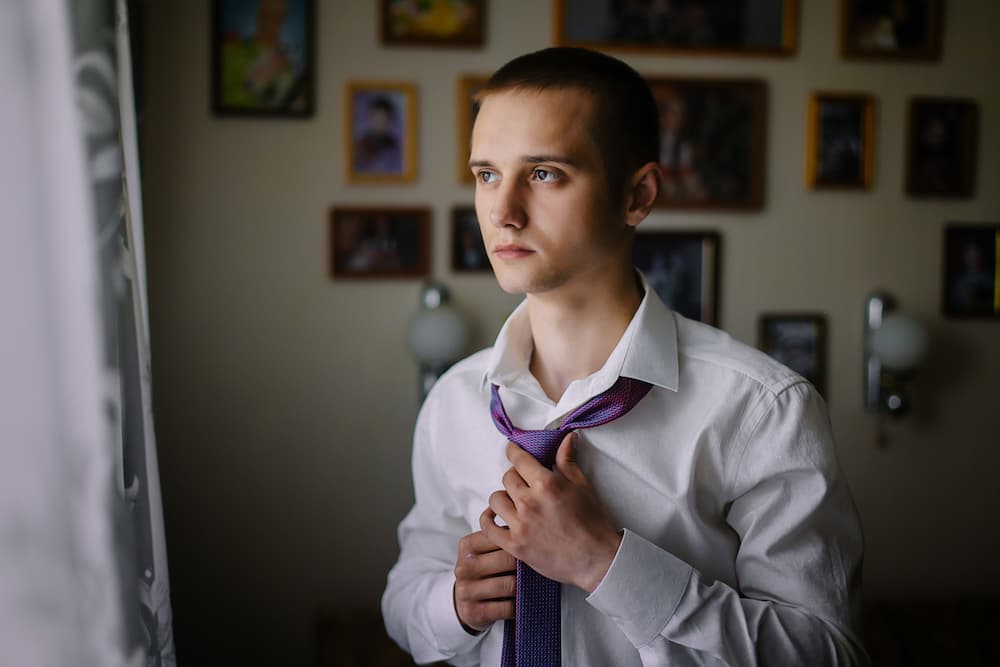
Many young people find that it helps them to go to their parent’s funeral and share their sadness with their family and friends and celebrate their parent’s life.
"I was able to go and see Dad in an open casket and I was able to put some things in his coffin and touch him, which helped me realise he was dead as I wasn’t able to see him at the hospital after he died."
Amy
But if you don’t want to go to the funeral, there are other ways you can say goodbye. You could plant a tree, tie a message to a balloon and let it go, or visit a special place you used to go to with your parent.
This is one of the biggest and hardest things that will ever happen to you, so don’t feel like you have to be a certain way, or say particular things. Let your feelings come when they come.
“Something I wish I had of done after Dad had
passed away -I had prepared a speech for the funeral but I didn’t end up giving it, which I will regret for the rest of my life. I was too worried about being judged and getting upset in front of everyone. That was my one opportunity to share with everyone about how much Dad meant to me and I missed it.”
Melissa
Bereavement
As the initial shock wears off and you gradually acknowledge that your parent has died, you might start to feel pain more strongly.
"The hardest part is realising Dad’s not here for the special occasions. And not having him ring at night to say goodnight."
Amy
When someone you love dies, you are “bereaved”. The mixture of thoughts and feelings you have as you deal with your parent’s death is called “grief”. The way you display your grief is called “mourning”. This will be different according to your culture, religion, family traditions, as well as your personality.
“I was sad that Dadwouldn’t be there to see me become the woman I was meant to be, to see me achieve my goals, to possibly see grandkids one day.”
Lizzie

Whatever you feel when someone dies is normal
Grief shows itself in different people in different ways. This can include things like:
- Crying (or not crying – it doesn’t mean you don’t care if you don’t cry)
- Wanting to be alone
- Sleeping a lot, or not much at all
- Finding it hard to concentrate, being forgetful
- Your body hurts – your head, stomach, your throat all ache
- Lack of interest in usual activities
- Wanting to party or keep really busy
- Wanting to move away from where you live
- Talking to the person who died
- Doing activities that remind you of them
- Throwing things out
- Avoiding talking about what’s happened
There are lots of other grief reactions you might have. Whatever reactions you experience, they are normal for you. Everyone experiences grief differently. There is no right or wrong way to grieve.
Grief has a mind of its own
It doesn’t follow a pattern and you can’t predict how long it will take.
It might feel like it comes and goes in waves. You will have some good days, then you might be knocked over by a wave of feeling so strong you don’t know which way is up. This can happen at times like birthdays or anniversaries. Or when you least expect it, like when you hear a song on the radio, or are reminded of the last movie you watched with your mum or dad, or someone rings up and asks to speak to them on the phone.
Be kind to yourself and others
You will need to have a lot of patience for yourself and the people around you – particularly if you show your grief in different ways.
It’s OK to deal with it at your own pace. Don’t listen to people who tell you to “move on” or “get over it”. You will always feel connected to your parent, even when they are not there.
When things get really crazy, you may be tempted to vent your feelings in ways that can harm yourself or other people. Beware of signs that you are not coping with your grief, such as using drugs and alcohol or taking it out on others with violence.
As much as you can, it helps to maintain a routine. It also helps if you keep your body as healthy as possible with good food, drinking enough water and getting enough sleep and exercise.
Tips to help you get through grief:
- Take one day at a time. Don’t worry about tomorrow.
- Remember that everyone will act differently – there’s no right or wrong way.
- Find someone you can trust and share your feelings.
- Try to be active and exercise.
- Listen to music that suits your mood. Sad music won’t necessarily make you feel worse, it can actually make you feel less alone. It can be comforting to know that other people have felt as sad as you before.
- Hold onto hope. You might find hope and comfort from people who have experienced a similar loss. Learning about some of the things that helped them and realising that with time, things do get easier can help to give you hope.
- It can be really helpful to talk to a bereavement counsellor because they are used to being around people who are grieving like you and they really understand what you are going through. You may be able to find one through your parent’s palliative care team.
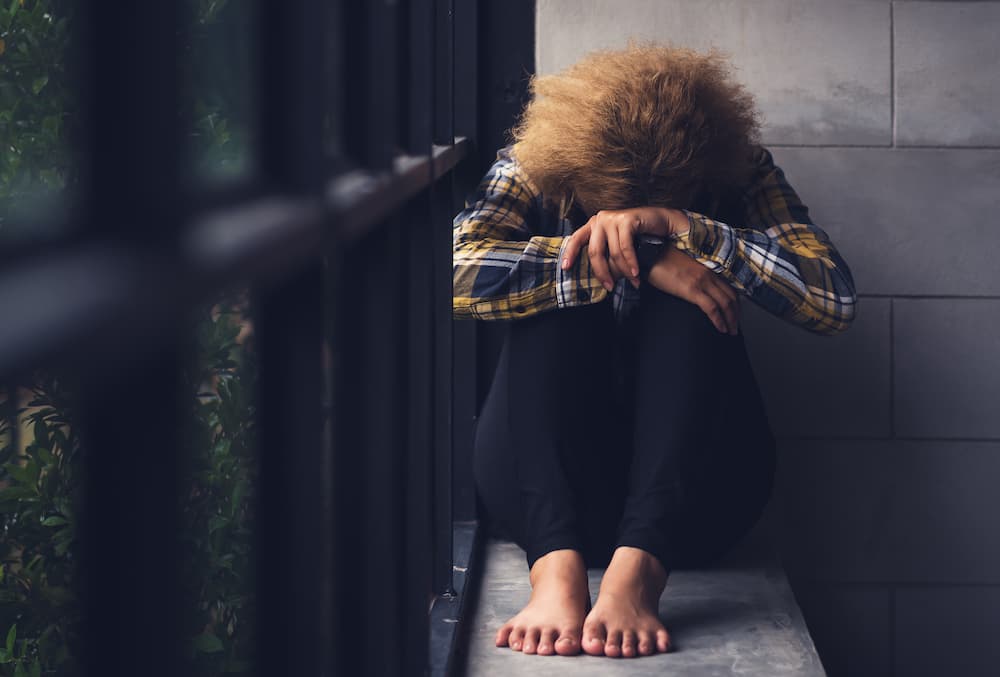
Some thoughts to carry with you
You will always have memories
Do not be afraid that you will forget your parent. It will not be possible to forget them, even if you wanted to. They will always be a part of your life. You don’t need to feel guilty if you go for 20 minutes without thinking about them, or if you catch yourself laughing or having fun with your friends.
"One thing I found helpful were the kind words people expressed about Dad. Knowing that he had impacted so many lives, not just mine, made me proud of everything I had done for him."
Mark
The pain will get less with time
At first you may wonder if you will ever feel happy again. Time has a way of healing. As much as it feels the world is going to end, you will get through this.
“I have learnt that I can get through just about anything.
As much as I thought I wasn’t going to make it after dad died, I found an emotional strength I
didn't know I had inside of me!”Melissa
It’s OK to make mistakes
No one is perfect in these situations. There is no point dwelling on the things you wished you could have done differently or punishing yourself for not handling things better.
"I learned that making mistakes is so important to growth and learning and that you can learn from failures. It isn’t really failing anyway, it’s just valuable life experience."
Lizzie
Remember: You will never forget your parent.
"I think if you don’t laugh it’s even harder. It’s a way of coping. Even though it’s not funny."
Peta
Your parent would want you to be happy
Stay open to new experiences. It’s OK to make some changes in your life and spend time with new people.
Your life won’t be the same as it was before, but it will be rich and full.
You cannot change what will happen/has happened, accepting it and living your life to the fullest is all you can do. Life is too short!
It’s OK to take some positives away from this
This experience will change your life. Some young people like to look at the meaning and impact it has had on their life.
You may realise more about what your family means to you or be proud of the strength you showed in getting through this. You may feel motivated to achieve certain goals, or to appreciate life more.
But there’s no need to search for deeper meaning or think about what lessons you have learned if you don’t want to.
It’s perfectly OK to think the whole thing sucks. It’s also OK to come out the other end of this being the same, faults and all.
“I didn’t learn anything per se, but defnitely feel much more strongly about appreciation and living life to the fullest – an overused term but I feel the meaning has always been underrated.”
Megan

Glossary
Advanced cancer Cancer that is unlikely to be cured. It might be the original cancer or cancer that has spread or come back.
Bereavement The period after the death of a loved one during which grief is experienced and mourning occurs. “Grief” is your personal experience of loss and includes physical and emotional responses. “Mourning” is the way you display your grief. The time spent in a period of bereavement is different for each person.
Cancer A general term for a large group of diseases that have uncontrolled growth and spread of abnormal cells.
Carer A carer is generally a family member or close friend who looks after the patient and makes sure they have everything they need. A young person (read: you) might be your parent’s carer.
Chemotherapy The use of drugs to treat cancer by killing cancer cells or slowing their growth. It is also used in palliative care to control pain or other symptoms of cancer.
Chronic illness A medical condition that is permanent or long-lasting.
Complementary therapy Treatments (such as yoga, relaxation or nutrition) that may be used as well as medicine to make your parent feel more comfortable.
Coroner A government officer who investigates any death that is not obviously from natural causes. There does not have to be anything suspicious about the death for a coroner to be involved.
Diagnosis The process of identifying a disease by its signs or symptoms.
End-of-life care The end stage of palliative care where the patient is very close to death.
Euthanasia The assisted death of someone who would rather die than suffer from the effects of their illness. It is illegal in Australia.
Funeral Director A professional person who can organise the practical and legal requirements of a funeral.
Holistic care Care that incorporates different types of therapies and services to make sure that all your physical, emotional, spiritual and practical needs are met.
Hospice A place that provides care for people with a life-limiting illness in a home-like environment. Patients might go in for a short time to bring their symptoms under control or to give their carers a break, and then go home again. They may also choose to die there.
Life-limiting illness An illness that is unlikely to be cured and will cause the person to die at some stage. A person may live with a lifelimiting illness for weeks, months or years.
Malignant cancer A malignant tumour is likely to spread to other parts of the body if untreated.
Metastasis Also known as secondary cancer. A cancer that has spread from another part of the body.
Morphine A strong and effective painkiller, which is commonly used to treat people with cancer who have pain.
Oncology The study and treatment of cancer.
Palliative care The care of people who have an illness that cannot be cured. The main aim is to improve the quality of life of the patient by looking after all of their needs – including physical, emotional, spiritual, social and practical. It is not just for people who are about to die, although end-of-life care is part of palliative care.
Palliative care team A multidisciplinary team which may include nurses, doctors, social workers, volunteers, chaplains, psychologists, physiotherapists and other kinds of complementary therapists.
Pastoral care Care provided by a person trained in giving spiritual and emotional support for a patient and their family, often just by talking to them and if requested, offering prayers and religious rituals. It is usually provided by counsellors, chaplains and other religious ministers or elders.
Post-mortem A medical examination to determine the exact cause of death.
Primary cancer The original cancer. Cells from the primary cancer may break away and be carried to other parts of the body, where secondary cancers may form.
Primary carer A person who takes the most responsibility for looking after the patient. The primary carer of your Mum or Dad might be your other parent, another relative or even you. There are many support services available to help the carer.
Prognosis The likely outcome of a person’s disease. When people are receiving palliative care, their prognosis is usually that the illness cannot be cured and is life-limiting. Doctors make their judgement based on their knowledge and experience with patients with similar medical conditions.
Quality of life The patient’s level of comfort and satisfaction, based on how well all of their physical and emotional needs are met.
Radiotherapy A cancer treatment involving high energy X-Rays to kill cancer cells, stop them growing or to reduce the pain from cancer.
Red blood cells Cells that contain ‘haemoglobin’, that carries oxygen around the body. Relapse The return of the disease after a period of improvement.
Remission When there are no signs or symptoms of active disease.
Respite care A service which provides temporary care for the patient, to give the carer and the patient a short break from their usual situation. Respite can be in a hospital, hospice or at home.
Resuscitation A medical action that aims to return someone to life when their heart or breathing has stopped. Resuscitation may or may not be successful.
Survival Rate The percentage of people who are still alive after a particular time with a certain disease.
Symptoms Signs of an illness. This includes things such as pain, fever, nausea, fatigue and breathing difficulties.
Terminal When a person who has an incurable disease is showing signs and symptoms that suggest their death is about to happen.
Tumour A growth or lump, which may or may not be cancer.
White blood cells Cells in the blood that help to fight infection.
Who does what?
Oncologist A doctor who specialises in the treatment of cancer.
Oncology Nurse Specialist A registered nurse with additional education and training in cancer.
Registered Nurse A nurse who provides regular care in the hospital or outpatient clinic.
Cancer Care Coordinator A nurse who is the main point of contact and helps patients and families communicate and deal with the different members of their treatment team.
Palliative Care Nurse A nurse with special training in caring for people with a lifelimiting illness. They provide care, advice and support for patients and their families - in hospital, in hospices or at home.
Palliative Care Specialist A doctor who has special training to be able to assess the needs of a person with a life-limiting illness. They prescribe medical treatment for pain and other symptoms, advise the other members of the palliative care team and support the patient and their family and carers.
Physiotherapist A professional who helps with recovering physical movement and muscle strength. Clinical Psychologist A professionally-trained therapist who helps with emotional and mental well-being.
Social Worker A trained professional who helps patients and their families cope with life with cancer. They help with things like support services, financial assistance and other practical issues.
Dietician A professional who provides information to patients and their families about nutritional needs related to cancer and treatment.
Pharmacist A professional who is knowledgeable about drugs and medication.
Pastoral Care Worker A person trained to provide spiritual and emotional care as a part of treatment. They include counsellors, chaplains and other religious ministers or elders.
Where to get help
Cancer info, stories and support groups
his is a website for all young people who have cancer in their lives. There are lots of real-life stories, blogs, forums and heaps of information. You can also order free copies of the other “Now What…?” books from this site.
Canteen is an organisation that supports young people aged 12-24 who have a parent who has, or has died from, cancer (it also supports young cancer patients and their siblings). They run a range of camps and programs to bring together young people in a similar situation, share their experiences and get away from it all for a while. Call 1800 226 833.
The Cancer Council Australia website has lots of good, clear information on cancer and can direct you to Cancer Council support services in your state. These include counselling, support groups and practical or financial assistance. Call 13 11 20.
Counselling and emotional support services
Canteen runs a FREE counselling service especially for young people who have a parent who has, or has died from, cancer. You may be able to talk to a counsellor in person, in a group, on the phone or online. Call 1800 CANTEEN or email support@ canteen.org.au to find out more.
Not just for kids, but for teens and young adults too, this website has a free and confidential counselling service for people going through tough times. You can talk about anything that’s bothering you. You can talk to a counsellor on the phone, on web chat or by email – any time of the day. Call 1800 55 1800.
Lifeline is an organisation that has useful information on counselling, health, accommodation and many other services to help you. Call 13 11 14.
Youth Beyond Blue supports young people dealing with depression, anxiety and other mental health problems. They provide tips on how to talk about depression and get help.
Tips for dealing with grief and loss
The Australian Centre for Grief and Bereavement is an organisation that provides information about grief – and how to get through it! It also has links to other resources and information that offer support when someone is dying.
This is a great website with lots of tips and helpful articles to help young people who are experiencing grief and stress. www.reachout.com.au A site for young people who are going through tough times. Find stuff out, understand more about mental health and wellbeing, get help and connect with other young people.
This site you can read simple information about cancer, some suggestions for coping and the personal stories of other young people. It is mainly about young people who have a mother with breast cancer, but lots of the information is relevant for any cancer.
This UK website gives information and advice on how to deal with the practical and emotional and effects of living with and after cancer.
Palliative care and help for carers
Home Hospice offers free support for people who are caring for a loved one living with a terminal illness at home. They can send a trained Community Mentor to offer your family guidance, information and support so that your ill parent can continue to live at home until they die.
This website brings together resources and information about palliative care and how to find services in your area. It gives really good suggestions about how to care for someone who is ill, and how to yourself as a carer. www.youngcarers.net.au This organisation supports young people who are caring for a parent who is physically or mentally ill. They run support programs and provide information and links to other services. You can access the Young Carers Association in your state from this site.
Practical assistance
If you need financial assistance, you may be able to receive payments through Centrelink if you are a carer, a student, unemployed, in a remote area or bereaved.
www.servicesaustralia.gov.au/death-loved-one
This is Centrelink’s bereavement support page. It gives information about payments and services you may be able to receive after your parent dies. Plus information about who you need to tell and other legal requirements.
This site for under 18’s can answer any questions you may have about the law. www.afda.org.au The Australian Funeral Directors Association provides information on what to do when someone dies and a directory to help you find a funeral director.
Helpful Phone Numbers
Canteen 1800 226 833
Kids Help Line 1800 55 1800
Lifeline 13 11 14
Cancer Council Helpline 13 11 20
Young Carers 1800 242 636




